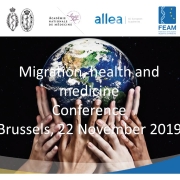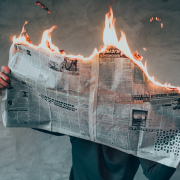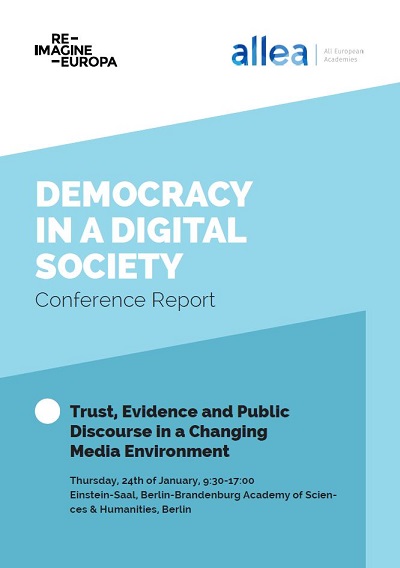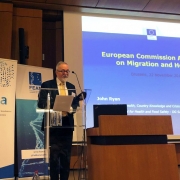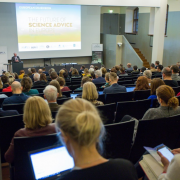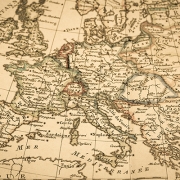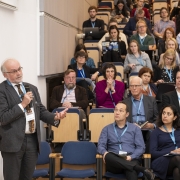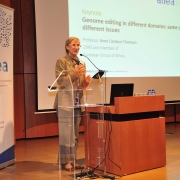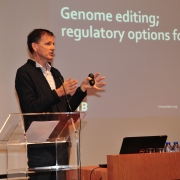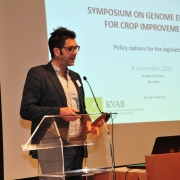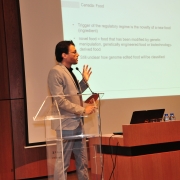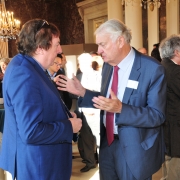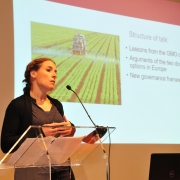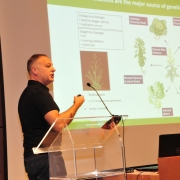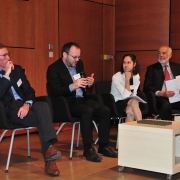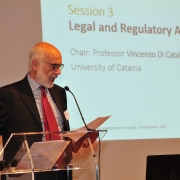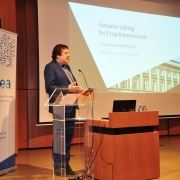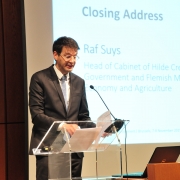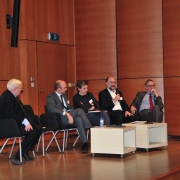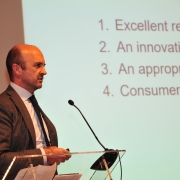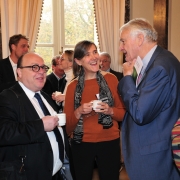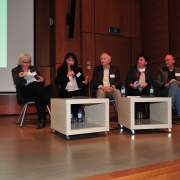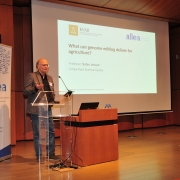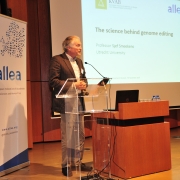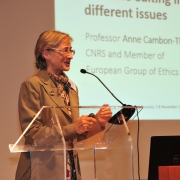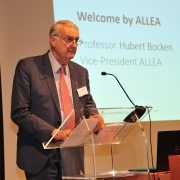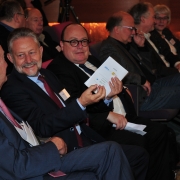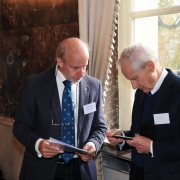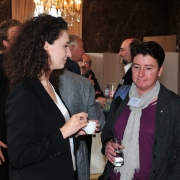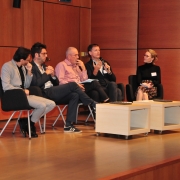New “Maryam Mirzakhani New Frontiers Prize” for early-career women in math dedicated to the legacy of the late Iranian mathematician
The public nomination period for the 2021 Breakthrough Prizes in Fundamental Physics, Life Sciences and Mathematics is now open. Prizes will be awarded in late 2020, during a live, globally televised gala awards ceremony in Silicon Valley.
Nominations can be submitted online today through April 1, 2020. While self-nominations are prohibited, anyone may nominate another person. The nomination forms and rules are available at breakthroughprize.org.
For the ninth year, the Breakthrough Prize, recognized as the world’s largest science prize, will honor top scientists, handing out up to four prizes in Life Sciences, one in Fundamental Physics and one in Mathematics. Each prize comes with a $3 million award. Furthermore, up to six New Horizons Prizes, each for $100,000, will be presented to promising early-career researchers in the fields of Physics and Mathematics.
In addition, for the first time, nominations will be taken for the Maryam Mirzakhani New Frontiers Prize – an annual $50,000 award that will be presented to early-career women mathematicians who have completed their PhDs within the previous two years.
The Breakthrough Prize, dubbed ‘The Oscars of Science,’ hosts a gala awards ceremony to celebrate the laureates’ achievements and to foster broad popular support for scientific endeavors and inspire the next generation of scientists. As part of the schedule, the prizewinners also engage in a program of lectures and discussions at a daylong symposium after the ceremony.
For the fourth year, the Breakthrough Prize will partner with two prestigious institutions – the European Federation of Academies of Sciences and Humanities (ALLEA) and ResearchGate – to directly engage with researchers and the science community.
ALLEA brings together more than 50 academies from over 40 countries in Europe, with members leading scholarly enquiry across all fields of the natural sciences, social sciences and humanities.
ResearchGate accesses a network of more than 16 million verified scientists from 193 countries and all fields of science and mathematics to connect and share their research – current and past. ResearchGate members are encouraged to nominate their peers for the 2021 prizes in Fundamental Physics, Life Sciences, and Mathematics.
The Breakthrough Prizes are sponsored by Sergey Brin, Priscilla Chan and Mark Zuckerberg, Pony Ma, Yuri and Julia Milner, and Anne Wojcicki. Selection Committees are composed of previous Breakthrough Prize laureates, who select the winners from the list of candidates generated during the nomination period.
Breakthrough Prize in Fundamental Physics
One 2021 Breakthrough Prize in Fundamental Physics ($3 million) will recognize an individual(s) who has made profound contributions to human knowledge. It is open to all physicists – theoretical, mathematical and experimental – working on the deepest mysteries of the Universe. The prize can be shared among any number of scientists. Nominations are also open for the New Horizons in Physics Prize, which will include up to three $100,000 awards for early-career researchers who have already produced important work in their fields.
The Selection Committee for the 2021 physics prizes includes: Nima Arkani-Hamed, Jocelyn Bell Burnell, Charles L. Bennett, Sheperd Doeleman, Lyn Evans, Michael B. Green, Alan Guth, Joseph Incandela, Takaaki Kajita, Charles Kane, Alexei Kitaev, Maxim Kontsevich, Andrei Linde, Arthur McDonald, Juan Maldacena, Eugene Mele, Lyman Page, Saul Perlmutter, Alexander Polyakov, Adam Riess, John H. Schwarz, Nathan Seiberg, Ashoke Sen, David N. Spergel, Andrew Strominger, Kip S. Thorne, Cumrun Vafa, Yifang Wang, Rainer Weiss and Edward Witten.
Breakthrough Prize in Life Sciences
Up to four 2021 Breakthrough Prizes in Life Sciences ($3 million each) will be awarded to individuals who have made transformative advances in understanding living systems and extending human life.
The Selection Committee for the 2021 Breakthrough Prize in Life Sciences includes: C. David Allis, James P. Allison, Victor Ambros, Angelika Amon, Cornelia I. Bargmann, Alim Louis Benabid, C. Frank Bennett, David Botstein, Edward S. Boyden, Lewis C. Cantley, Emmanuelle Charpentier, Zhijian “James” Chen, Joanne Chory, Don W. Cleveland, Hans Clevers, Karl Deisseroth, Titia de Lange, Mahlon R. DeLong, Jennifer A. Doudna, Stephen J. Elledge, Napoleone Ferrara, Jeffrey M. Friedman, Michael N. Hall, John Hardy, F. Ulrich Hartl, Helen Hobbs, Arthur L. Horwich, David Julius, Adrian Krainer, Eric S. Lander, Robert Langer, Virginia Man-Yee Lee, Richard P. Lifton, Kazutoshi Mori, Kim Nasmyth, Harry F. Noller, Roeland Nusse, Yoshinori Ohsumi, Svante Pääbo, Gary Ruvkun, Charles L. Sawyers, Alexander Varshavsky, Bert Vogelstein, Peter Walter, Robert A. Weinberg, Shinya Yamanaka, Xiaowei Zhuang and Huda Zoghbi.
Breakthrough Prize in Mathematics
One 2021 Breakthrough Prize in Mathematics ($3 million) will be awarded to an individual who has made outstanding contributions to the field of mathematics. Nominations are also open for the New Horizons in Mathematics Prize, which will include up to three $100,000 awards for early-career researchers who have already produced important work in their fields. In addition, one $50,000 Maryam Mirzakhani New Frontiers Prize will be awarded. This prize can be shared among one or more mathematicians.
The Selection Committee for the 2021 math prizes includes: Ian Agol, Alex Eskin, Simon Donaldson, Maxim Kontsevich, Christopher Hacon, Vincent Lafforgue, Jacob Lurie, James McKernan, Terence Tao and Richard Taylor.
Information on the Breakthrough Prizes is available at breakthroughprize.org.

